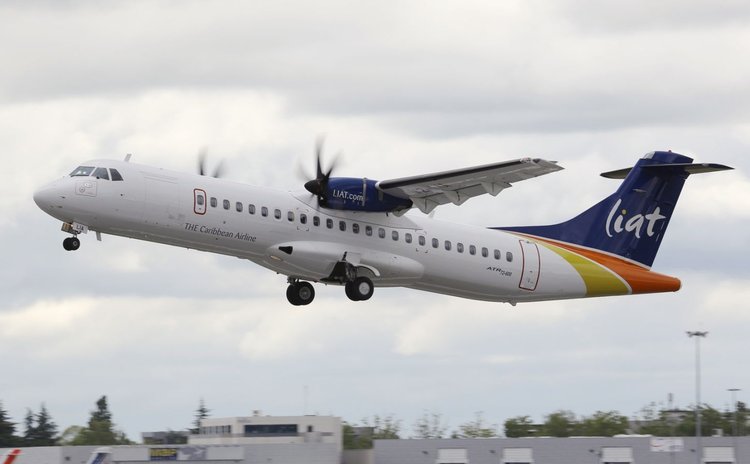Do we really need an international airport at this time?

The present government of Dominica or any future government, regardless of political complexion, must be realistic in its approach to the matter of building an international airport. It is nothing short of wishful thinking to expect that Dominica stands to benefit from such a venture even before a cost-benefit analysis has been undertaken, clearly indicating that the project will be beneficial to us. And it cannot be overemphasized that such an analysis should be undertaken by independent syndicate with a solid track record.
I am not aware that much thought has been given to the all important matter of being guided by the conclusions of a cost-benefit analysis in taking a sound decision on whether or not an international airport should be built. The over-riding concern is more about where the money will come from to finance the project. This seems like putting the cart before the horse. With regard to the question of sourcing the requisite funding, this is in itself an herculean challenge at a time when the traditional international donor agencies are getting more stringent in the conditionalities attached to making funds available for development projects. Moreover, donor fatigue has diminished the generosity of those traditional donors.
Among the commonly heard arguments for building an international jet airport in Dominica are considerations of our agricultural produce going to waste in the fields, and air passengers having to overnight in neighbouring islands because of the unavailability of an international jet airport in Dominica. As regards the former, what we consider to be an abundance of local produce could well prove to be inadequate for external markets able to take such produce. Importantly, consideration must be given to the issue of reliability of supply. Are we really in a position to supply the markets under consideration with the produce as frequently as they would like to have them? The answer to this does not lie just in setting up fruit processing plants, since we cannot guarantee the large-scale production that would make this course of action profitable. Admittedly, it would serve a good purpose in the short term but what we need is a sustainable business.
With regard to the other consideration regarding the need to facilitate passengers coming from the metropolitan countries, one must face the question as to how often we would expect large numbers of returnees. It can readily be admitted that during the Christmas season, we would expect a relatively heavy inflow of visitors. That was also true in the past of carnival lovers in the month of February of every year, but over the past two decades or so, there has been a dwindling of such an inflow, partly because more and more people find it is enough to view carnival and carnival-related shows on the internet and to participate in CARIBANA festivities in the case of those residing in the U.S.A and Canada, and the Notting Hill carnival in the case of those who reside in the U.K.
Some people may argue that a growing tourism industry, attracting regular inflows of visitors and with a need for long-stay visitors, would justify the building of an international airport. But the current pace of developments in our tourism sector as well as our inadequate hotel infrastructure does not warrant viewing the matter of building an international airport as one which is very urgent. Moreover, there are risks to be considered in going all out to invest in what is known to be a "sensitive" industry. We should not delude ourselves into thinking that Dominica is at present one of the most desirable tourist destinations in the world. Nor should we rule out the possibility that Dominica could overnight become an unpopular tourist destination for reasons internal or external. Incidentally, these observations are not intended to discourage the current determined move to upgrade the local tourism product.
A scenario, in which large aircraft would be coming in practically empty most of the time, and cargo planes are leaving much of the time with empty space, due to failure on our part to provide adequate produce for export, would be most unfortunate for our country. We can avoid this.
Let us learn from the experience of our neighbouring sister islands with international airports. With the possible exception of Antigua and Barbados enjoying an advantageous location in the region and presumably breaking even in their commercial transaction, I know of no other island with an international airport facility that can boast of deriving substantial benefits from operating an international airport. Not too long ago the St. Lucia government entered into an arrangement with a U.S. airline, requiring the former to pay a few million EC. dollars periodically as a condition on which the latter would continue to include visits to St. Lucia in its flight schedule. How St. Lucia stands to benefit from that deal should be a matter of interest to us. Admittedly the possession of a modern international airport confers a degree of status on an Eastern Caribbean country, but the cost of maintaining such a facility is a different kettle of fish altogether.
It is well known that road maintenance in Dominica is a rather expensive proposition, claiming a substantial share of the annual national budget. If we were to add to this the cost of maintaining an unprofitable international airport, we would be placing the additional heavy burden of loan repayment on the Dominican tax payers for which posterity would not forgive us.
In keeping with my objective view of the issue as to why an international airport is not necessary at this point in time, I would readily admit that the existing arrangement, which provides for night landing of aircraft, is a convenient and cost-effective venture, that could perhaps be improved upon as time goes by.
Alfred. C. Leevy




